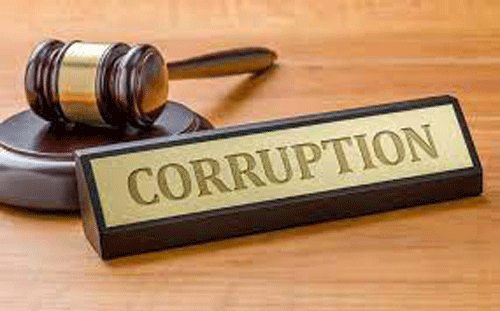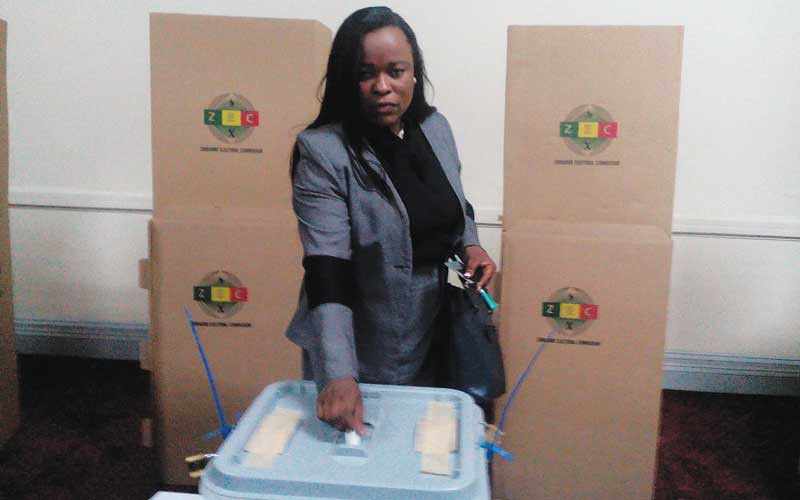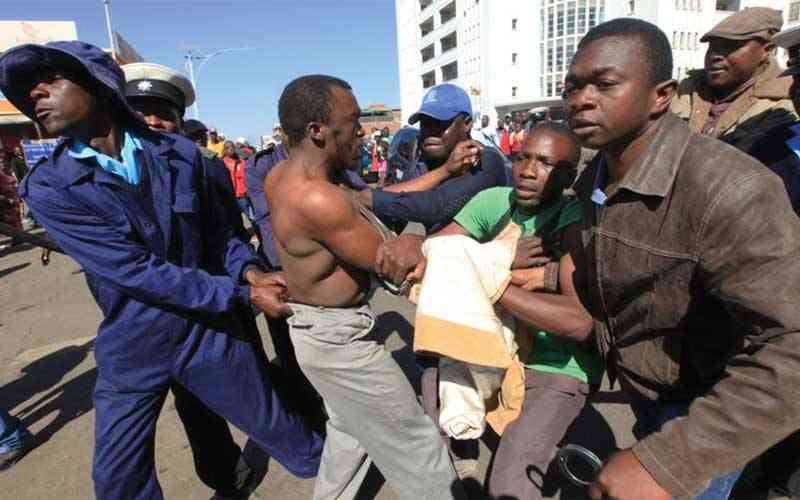
FROM its original Latin meaning corrumpere (to destroy) or rumpere (to break), we can see that corruption leads to the destruction of moral values that hold a society, together.
In other words, it brings about the decay and decomposition of the virtues and moral principles of a society, resulting in the lack of faith and trust in both the public and private institutions.
In 2020, it was published in newspapers that Zimbabwe had lost US$60 million to Drax International to corruption in the procurement of COVID-19 consumables. This led to the sacking of Obadiah Moyo as Health minister.
Prior to that, Priscah Mupfumira had been caught with her hands allegedly dipped in the cookie jar.
A Transparency International survey shows that Zimbabwe is rated among the most corrupt countries in southern Africa.
There is a wide cry that sanctions are behind the failure of the economy, but if the truth be told, corruption has impaired the economy, political and social set-up, hence the government has failed to curb the disease by implementing austerity measures because they are benefiting from the system.
A retired senior police officer once said that corruption is increasingly becoming a culture and endemic feature in Zimbabwe due to the fact that everyone is part and parcel of the corrupt system.
There is the proclivity of engaging in the vice from government officials down to the general public.
- Chamisa under fire over US$120K donation
- Mavhunga puts DeMbare into Chibuku quarterfinals
- Pension funds bet on Cabora Bassa oilfields
- Councils defy govt fire tender directive
Keep Reading
Corruption has now been institutionalised, people live in corruption and they have been absorbed into the corrupt system, but they have the power to put up a genuine fight to end the scourge.
Zimbabwe’s economic situation is a progeny of corruption. Political, economic and bureaucratic corruption should be blotted out to enhance development and progress.
It begins with the general public by fighting bureaucratic corruption which they are deeply and actively involved in every day.
Passivism by continuing engaging in corruption will exacerbate the situation, but activism in fighting it is the panacea.
It only takes committed people to fight corruption for the betterment of tomorrow. –Mukunda Chitova
Diasporans must be allowed to vote
THIS new dispensation must live by its promises and allow the people in the diaspora to exercise their democratic right by voting a government of their choice.
The ruling party has failed to change the lives of the ordinary Zimbabweans since the stunning fall of the late former President Robert Mugabe in November 2017.
People thought the arrival of President Emmerson Mnangagwa was going to usher in a better and sound government, but nothing has changed.
Most Zimbabweans in the diaspora are sick and tired of living outside the country and are yearning for change. A number of them are living under squalid conditions. Life in the diaspora is not all that rosy.
People want to come home and contribute to the development of their nation, but are hindered by the ever-rising cost of living, unstable economic environment and political instability. Diaspora remittances can make a difference in Zimbabwe’s political discourse only if they are allowed to have a say in the day-to-day running of the country.
Zimbabweans in the diaspora have proved to be a force to reckon with. They want to be part and parcel of change.
Zimbabwe needs a robust plan to roll out its major economic projects with the help of its citizens scattered around the globe.
The government must create a conducive environment for such things to happen. Unfortunately, most diasporians are labelled traitors and puppets of the West. Government must allow the voice of those in diaspora to be heard.
Some people are home sick and are always living in fear of xenophobic attacks and harassment by foreign nationals because they are considered as illegal immigrants.
People in the diaspora have acquired skills and gained so much knowledge that can be used back home in developing the nation.
The failure by the Mnangagwa-led regime to bring back a once vibrant economy has left everybody asking why he engineered a coup to oust his mentor.
The new dispensation has focused more on looting public resources, celebrating mediocrity and failed to deliver on its election promises. –Leonard Koni
Provincial and Metropolitan Councils Administration Bill falls short of devolution
THE Combined Harare Residents Association (CHRA), in partnership with Institute of Young Women In Development (IYWD), has petitioned the Parliament of Zimbabwe on the nature and substance of the Provincial and Metropolitan Councils Administration Bill that was gazetted on March 32, 2021.
The Bill seeks to operationalise and govern the running of both provincial and metropolitan councils, however, it falls far short of the devolution principles provided for in chapter 14 of the Constitution.
The key concerns raised in the petition are that the gazetted Bill;
lSeeks to create two layers of government at the provincial or subnational level by conferring the constitutional functions of the provincial and metropolitan council as provided for in section 270 of the Constitution to the Provincial minister and devolution and provincial development co-ordinator, a move that has the potential to create conflict and duplication of roles in our local governance system.
lConfers ceremonial status to the elected provincial and metropolitan council which renders the provincial and metropolitan councils powerless in discharging their constitutional mandate.
lDoes not provide for a quota system to ensure equal representation of women, youths and people with disabilities in the composition of structures of the provincial council for all elected and non-elected positions.
lLacks clarity on the intentions of the Bill whether it is seeking to amend the Provincial Councils and Administration Act 29:11 or it’s a new Bill being proposed to operationalise provincial and metropolitan councils.
lNo footprint and evidence of contributions made by stakeholders in the contents of the Bill during the inter-ministerial taskforce alignment process that was done in Nyanga in 2020.
The petitioners implore Parliament to consider addressing these concerns and push for the re-gazetting as well as facilitate sufficient public participation of citizens during public hearings for the Bill.
In terms of the Constitution of Zimbabwe section 130(1) both the Senate and National Assembly have power to initiate, prepare, consider or reject any legislation.
CHRA reiterates that full implementation of devolution as provided for in the Constitution of Zimbabwe will enhance accountability and improve social service delivery. –Combined Harare Residents Association











